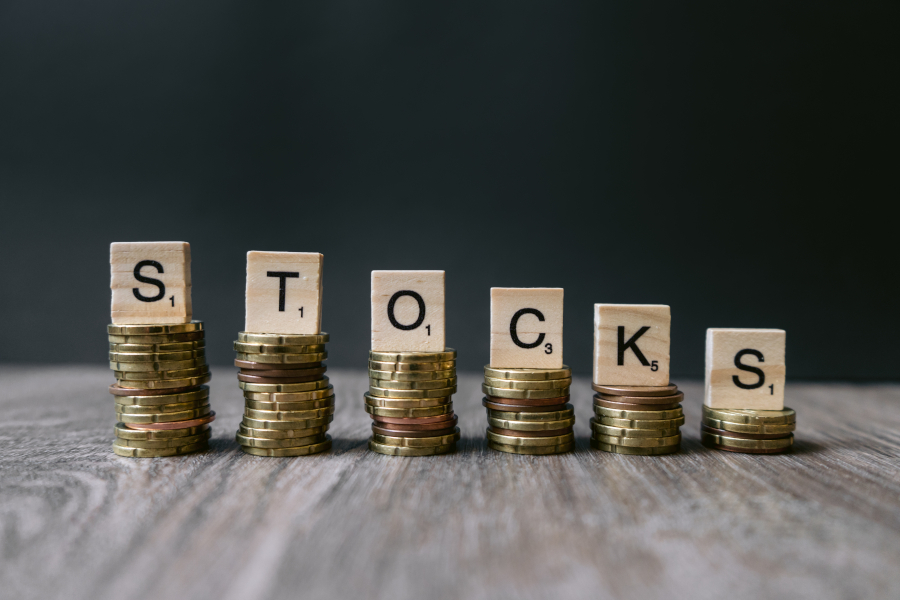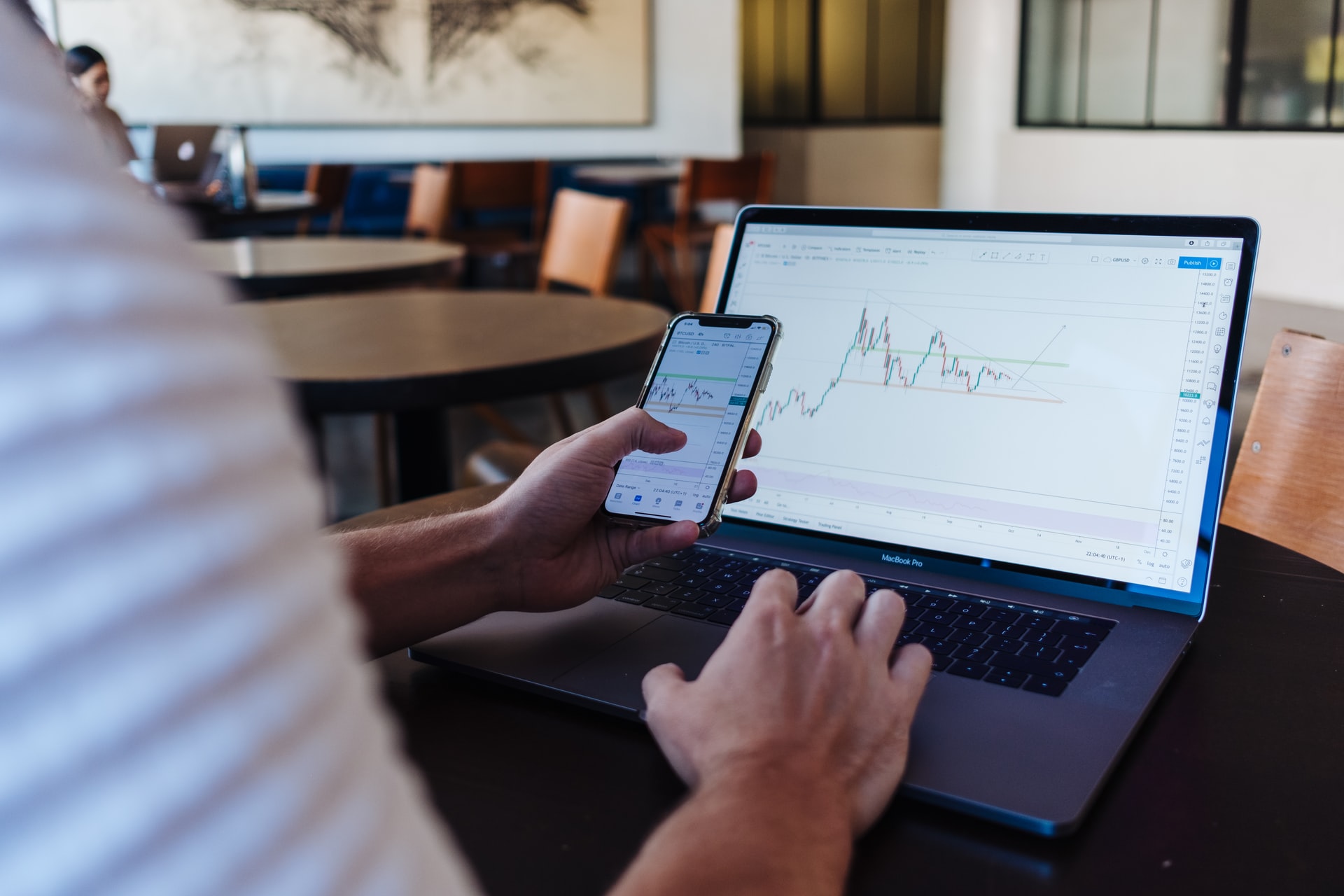
If you’ve checked your portfolio or 401(k) lately you might be looking for answers as to why the stock market is crashing.
The stock market has been knocking down many investors in the last few weeks. Personally, my portfolio is down about 20% from the flying highs of January and February 2021.
The Nasdaq recently recorded its worst session since October with tech stocks like Lemonade, Teladoc, and Zillow down more than 30% and Tesla, Zoom, and Redfin down more than 20%.
The downward spiral has not been consistent, though. We’ve seen a roller coaster of price fluctuations. One minute, stocks are rallying towards reprieve, and the next, they’re tumbling into the abyss.

What’s Happening to the Stock Market?
So, what’s going on? Is this the infamous market crash?
A bear market?
Are we in a correction?
Or is it just a rotation?
Well, I’ll explain what all those terms mean and try to locate where the stock market is at the moment.
What is a Correction?
A correction is a decline in market prices by 10% or more from their recent peak.
It’s called a correction because stock prices are ‘correcting’ to more effectively reflect the stock’s true value after a period of overconfidence by investors. A correction can occur to an individual stock, a benchmark index (e.g., S&P500, Dow Jones), or to the entire market.
The stock market officially fell into a correction by market close on 4th March 2021.
What is a Bear Market?
A bear market occurs when stock prices fall by 20% or more.
It’s generally associated with a benchmark index such as S&P500 or the entire market but can also happen when an individual stock experiences such declines over a prolonged period.
A bear market reflects a negative sentiment amongst investors when their outlook on growth fades and their expectations dampen.
What is a Rotation?
A stock market rotation is a shift of money from one group of stocks to another.
There are many types of stocks, the most popular types being growth stocks, value stocks, dividend stocks, and the recently popular ‘recovery’ stocks.
Recovery stocks are stocks that were heavily affected by the pandemic. Investors seem bullish on recovery stocks because they expect them to bounce back once the economy reopens, offering an opportunity for huge gains.
Other types of stocks, such as growth stocks, are therefore experiencing a sell-off in favor of recovery stocks.
Why the Stock Market is Crashing
Here are some of the reasons why the stock market is crashing, one of them being the notorious bond rates.
1. Bond Yields
The rising of treasury bond yields is arguably the most likely reason why the market is crashing. Before we go any further, let’s define a bond.
What is a bond? A bond is simply government debt. The government uses bonds to borrow money from individuals and institutions. In return, the government pays you interest(yield in %) each year you hold the bond.
There are several reasons why bond yields are rising but the most basic reason is that investors don’t want to buy bonds at the moment.
So, how do bond yields affect the stock market?
Treasury bonds are deemed ‘risk-free’ and arguably one of the market’s safest securities. ‘Risk-free’ here means minimal risk since there’s really no asset without risk.
When bond yields rise, it means bondholders get higher interests for holding ‘risk-free’ assets. It now becomes more tempting for investors to purchase bonds and less appealing to buy stocks, which are deemed riskier.
When those yields surpass certain thresholds – 1.5% for the 10-year treasury bond and 0.75% on the 5-year bond – the stock market starts to sell-off in reaction. At the time of this writing, both yields have risen above these thresholds to 1.71% for the 10-year and 0.86% for the 5-year.
In summary, when bond yields rise, investors sell their stocks to buy bonds, consequently causing a market crash.
2. Inflation Scare
Inflation refers to the rise in the price of goods and services, leading to reduced purchasing power. In other words, $1 can buy fewer goods.
So, when prices are high, consumers can only make fewer purchases, which leads to reduced revenues and profits for businesses.
Growth stocks often perform poorly during periods of high inflation, while value stocks tend to thrive. This is because growth companies have little to no cash flows to withstand prolonged periods of low spending. Meanwhile, value companies have more than enough cash flows to ride out such periods.
Inflation is expected to rise, mainly due to the generous fiscal stimulus we see from governments. Investors are thus closely monitoring the levels of inflation.
In its updated economic outlook, the Federal Reserve expects inflation to rise to 2.2% by the end of 2021. This is an upgrade from its previous projection of a 2% rise by 2023.
Expectations of high inflation is one of the reasons why the stock market is crashing.
3. Interest Rates
Central banks use interest rates to combat high inflation. Even though the Federal Reserve has promised not to jack up interest rates before 2023, investors are worried that rising inflation will necessitate it sooner than anticipated.
An increase in interest rates makes borrowing difficult and expensive.
Businesses are therefore forced to suspend their expansion plans, thus impeding growth. Diminishing growth, in turn, affects the share prices of such companies.
The Bottom Line
We’ve determined three significant reasons why the stock market is crashing:
- Attractive bond yields
- An inflation scare
- The anticipation that the Federal Reserve will raise interest rates sooner than expected to hedge against inflation.
If that’s not bad enough, there’s one more thing that could cause the market to crash even further–margin debt.
Margin debt is at the highest level it’s ever been in 3 years. Investors getting margin calls due to falling portfolios could further exacerbate the sell-off causing the market to fall even further.
What should you do? Stay put. Do not sell. You will only make a loss if you sell. If you have some money saved up, buy the dip. Get into your strong conviction positions now that they’re cheap. And one more thing, avoid margin debt. That way, you’ll sleep better at night.

















